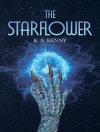In Karel Čapek’s novel ‘The Absolute at Large, ‘ the narrative intertwines philosophical inquiry with satirical exploration of technology and human existence. Written in 1922, this groundbreaking work presciently anticipates the ethical dilemmas posed by rapid scientific advancement. Through a fantastical premise, where a machine inadvertently discovers a limitless energy source that creates an omnipresent spiritual consciousness, Čapek delves into themes of existentialism, spirituality, and the uncontainable human desire for understanding. The novel’s stylistic blend of allegory, humor, and speculative fiction captivates readers while prompting profound reflection on the nature of reality itself and humanity’s quest for meaning in an increasingly mechanized world. Karel Čapek, a prominent figure in early 20th-century literature, is renowned for his contributions to science fiction and political philosophy. His experiences in a post-war society, coupled with his deep interest in the interplay between humanity and technology, undoubtedly informed his creation of this innovative work. Čapek’s literary voice is characterized by a unique ability to weave complex ideas into accessible narratives, allowing him to resonate with a diverse audience while highlighting pressing societal issues. Readers seeking a thought-provoking exploration of spirituality and the implications of scientific progress will find ‘The Absolute at Large’ an indispensable addition to their literary repertoire. Čapek’s masterful storytelling invites us to ponder not only the existential questions of our age but also the potential consequences of our relentless pursuit of knowledge.
عن المؤلف
Karel Čapek (1890–1938) was a Czech writer, playwright, and critic, renowned for his diverse literary work and for coining the word ‘robot’ in his play ‘R.U.R. (Rossum’s Universal Robots)’ (1920). A leading figure in Czech literature, he was known for his astute observations on political and social issues, which were often embedded in works of science fiction and allegory. Čapek’s novel ‘The Absolute at Large’ (‘Továrna na absolutno’, 1922) is one of his seminal contributions, exploring the themes of consumerism, spirituality, and the intersection of science and ethics, which reflected his own humanistic and philosophical inquiries. Characteristic of Čapek’s writing is a style that marries a whimsical sense of humor with a profound and often prescient commentary on the human condition. His work was influential on both a national and international level, as he captured the anxieties and hopes of the early 20th century and the dawn of the technological era. Despite the passage of time, Čapek’s literature continues to resonate, speaking to the timeless questions and dilemmas faced by society.












